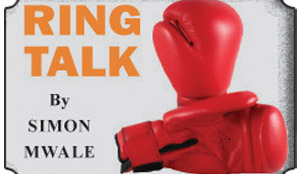 IT’S official, Bernard Hopkins, the oldest man in boxing history to win a world title at 49, turns 50 next January and believes in collecting titles and fame, will fight Sergey Kovalev (25-0, KO23-1) on November 8 in Atlantic City, New Jersey, United States.
IT’S official, Bernard Hopkins, the oldest man in boxing history to win a world title at 49, turns 50 next January and believes in collecting titles and fame, will fight Sergey Kovalev (25-0, KO23-1) on November 8 in Atlantic City, New Jersey, United States.
The predictions have already started with some predicting Hopkins’ defeat by stoppage while others give him a chance to repeat what he does best and is used to upsetting the odds.
According to BoxingNews24.com’s Allan Fox, Hopkins (55-KO32-6-2), will fight the undefeated WBO champion Kovalev in a light heavyweight unification matchup. To many, including this writer, nothing could be more bizarre than a man nearly half a century old trading leather with his ‘children.’
But the former “Executioner” now self-monikered “The Alien”, continues to fight not without a good reason. He’s beaten most of the youngsters — some half his age — instead of them doing so.
Hopkins has won his last three bouts, most recently snatching the WBA and IBA light heavyweight titles from Beibut Shumenov, a puncher, 18 years his junior.
I have not watched Kovalev, 31, who boasts an awesome 88.5 KO ratio before, but his 23 career knockouts suggest he’s a very dangerous opponent who could end Hopkins’ illustrious career on a disastrous note. Kovalev recently defended his WBO title against Blake Caparello on July 2, winning via a second round technical knockout (TKO).
The Russian power-puncher is confident and looking to make history by retiring his senior by 18 years. “… I’m happier (sic) that I’m going to be fighting Hopkins there (in the US) because that is going to put my name into the history of boxing. That’s going to put me in the top tier.”
As I wrote this piece, the lingering question in my mind was; is middle-aged boxing healthy or harmful? Here is what I gleaned from medical experts. As middle-aged champion Hopkins, 46 then, prepared to fight 29-year-old Chad Dawson a few years back, he boasted that he felt as good as he did a decade ago.
Interestingly, on the undercard, 52-year-old Dewey Bozella made his professional boxing debut against Larry Hopkins, an opponent also two decades younger.
While athleticism at their ages is impressive, both match ups raise the same question — at what age do the health risks of boxing become too great?
Dr Tyeese Gaines says for long-time fighters like Hopkins, the effects of boxing have been well-studied. As many as 40 per cent of ex-boxers have symptoms of chronic brain injury. One study found that over 80 per cent of professional boxers had major scarring on brain MRI scans. It can be assumed that continuing to withstand head trauma worsens this outlook.
“Most of the data collected, though, is on professional boxers who were involved in more than 12 bouts who fought for decades, like Hopkins. There is currently no research on boxers who start later in life.”
“However, anytime you’re talking about people taking repetitive risks to the head, the brain doesn’t like that,” says Dr. Jeffrey Kutcher, director of Michigan NeuroSport at the University of Michigan, who researches the effects of sport injuries on the brain.
Recently publicised concerns about boxing have focused on youth and brain development, which is, arguably, not a concern for new, older boxers like Bozella. By a person’s 20’s, the maturing processes of the brain are complete. But, Dr. Gail Rosseau says that doesn’t mean they are out of the water.
“We’re always at risk. Every blow to the brain is a new insult to the brain,” says Rosseau, a neurosurgeon at North Shore University Health System in Illinois. Brain injury can range from a minor concussion, where the person feels foggy for a few minutes, to debilitating injuries like bleeding in the brain.
Middle-aged boxers are no more likely to sustain a concussion than a younger opponent.
But, they are, in fact, at higher risk for brain bleeds, such as subdural hematomas, and worse outcomes.
“The older you are when you sustain a traumatic brain injury (as in boxing), the less likely you are to recover to your pre-injury status,” says Dr. Rosseau. “The typical time course for recovery from the same blow is longer in the older age group.”
“If you take a strong blow and you shake it off, and keep going — did that do anything to you or not?” asks Rosseau. “Are they really fine? We don’t know.”
Given these risks, why is Hopkins still fighting? Is it for paycheques or for glory? Whatever his reasons, he should be thinking about his health out of the ring.
Mwale.simon@yahoo.co.uk 0966 755574/0953744074






